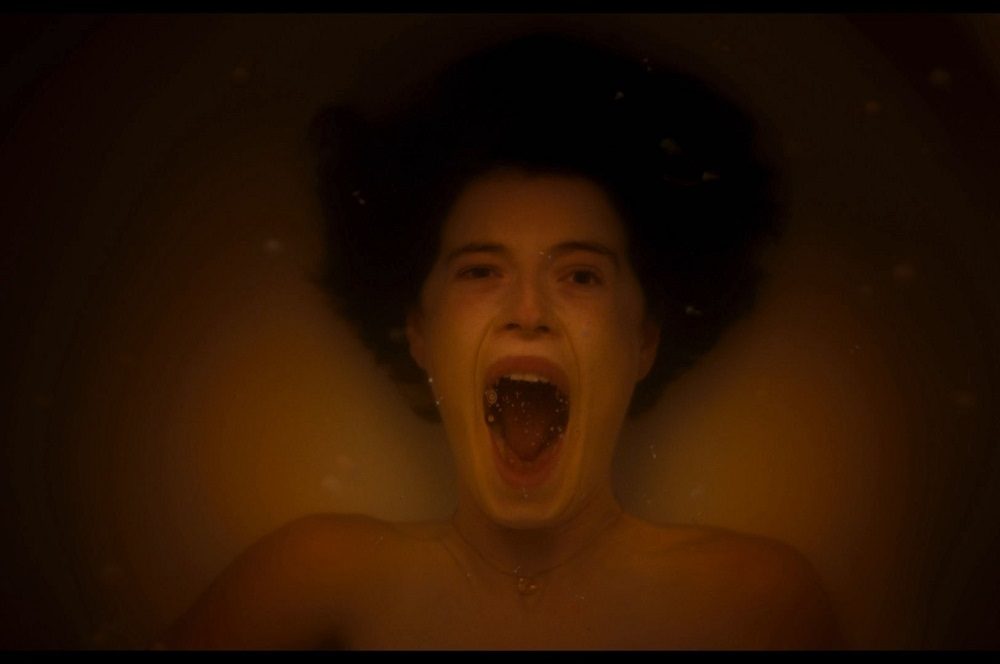Men

Jessie Buckley stars in MEN. (Photo: A24 Films)
Considering the simplicity of the title, there’s a lot to unpack in Men, a meticulously crafted examination of deep-rooted gender politics with a horror twist.
Although its ambitions occasionally become muddled, this stylish and sophisticated chiller from British director Alex Garland (Annihilation) is edgy and provocative without turning heavy-handed or settling for genre cliches.
The story opens with recently widowed Harper (Jessie Buckley) renting a country house from an eccentric landowner (Rory Kinnear) for some solitude and reflection.
While exploring the countryside, she encounters an abandoned stone-arched tunnel that triggers hallucinations and paranoia. Is there a naked prowler lurking outside? Why is her landlord so indifferent? Why aren’t there more women in this oddball village?
She maintains contact with a supportive friend (Gayle Rankin) back home who suggests Harper follow common sense and flee, bluntly asking: “What are you trying to prove?”
Even authority figures such as a police detective and a vicar fail to provide comfort. As details are revealed through flashbacks about her traumatic past, Harper is forced to endure a kaleidoscopic nightmare that’s anything but cathartic.
A committed performance by Buckley (The Lost Daughter) balances strength and vulnerability while providing a relatable emotional anchor. She’s not conventionally sympathetic, yet as the torment becomes more visceral for Harper, it does for moviegoers, too. Veteran character actor Kinnear (The Imitation Game) likewise is excellent.
Deliberately paced and intentionally ambiguous, Garland’s multilayered screenplay rewards patience even as its misdirection and narrative dead-ends can be frustrating. Despite a barrage of disturbing imagery, the cumulative impact turns mild in the end — although a third-act replication sequence will spark conversation.
Both visually striking and darkly atmospheric, the film’s pervasive sense of dread and despair is more psychological than physical. While the filmmaker refuses to be upfront about key contextual details, he delivers some effective straightforward frights by tweaking elements of body horror, the supernatural, and “final girl” tropes.
In its subversive attempt to deconstruct misogyny and troubling sexual dynamics, the film —sometimes contrary to what’s being shown on screen — doesn’t outright suggest that all women are irreproachable victims, nor all men are aggressive predators. Instead, it probes an unsettling gray area that invites self-reflection and interpretation without assigning guilt or taking sides.
Rated R, 101 minutes.